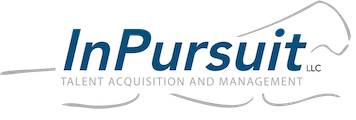As an avid sports fan watching various TV stations going into the baseball playoffs as well as the start of the football season, I have been inundated with a ridiculous Toyota commercial called “Now is the time” with balloons, banners, and showroom floors communicating “It’s time to buy”. They’re probably right if you are looking for a solid reliable vehicle for your garage. I'm going to stop with the fanfare but this commercial has me thinking about hiring, NOW!!
Why “Now is the Time” for hiring
-
Business economics have been waffling for the past six months and now there seems to be lift in several economic indicators on the move upward. “Job openings in the US rose in July by 178,000. In August private payrolls made a better-than-expected showing, increasing by 67,000. Many of the global economic indicators from South Africa to Australia made improvements.” (References from The Economist, Sept 15, 2010).
-
In the Minneapolis/St. Paul metro area companies have been steadily increasing the number of posted professional jobs in sales, engineering and manufacturing. Companies seem to be saying, “Now is the Time” to start hiring for specific professional positions. Many professionals are working harder and longer than ever before which has made it difficult to attract the current performers in the workforce causing higher demand and noise in the marketplace.
-
The “War for Talent” has already begun. We have noticed in our Retained Search business that selective hiring by employers has pit company against company for top performers. Top Talent are receiving multiple offers. These top performers will continue to be highly sought after in this next cycle of hiring. If these candidates can prove that they have the education, experience and the track record to make a significant difference they will be highly pursued.
-
et’s face it, from now until the holidays, employers want to add and employees want to make moves. They want to tee up the New Year with the right team. So if you have a position to fill by the end of the year you need to start, NOW.
You have an opportunity - DON’T MISS IT.
-
Define your needs up front by documenting the tangible and intangible “Must Have” and “Like to Have” criteria for the new position.
-
Develop and communicate expectations of the new hires 30, 60 and 90 day (and beyond) deliverables that you can use in the interview process to filter the talent.
-
Perform a deep dive to uncover your best candidates – Don’t just settle for the Monster candidate or the internal referral.
-
Move quickly but don’t forget to execute a thorough assessment of the all candidates.
-
Develop a detailed integration process. Go back to your timeline on deliverables and manage to it.
As a result, here’s what you’ll experience:
-
Good process should result in a shorter time to fill.
-
Setting solid candidate expectations will increase ROI sooner rather than later.
-
Hiring top talent will result in continuous ROI for your organization over the next several years.

Recent Comments